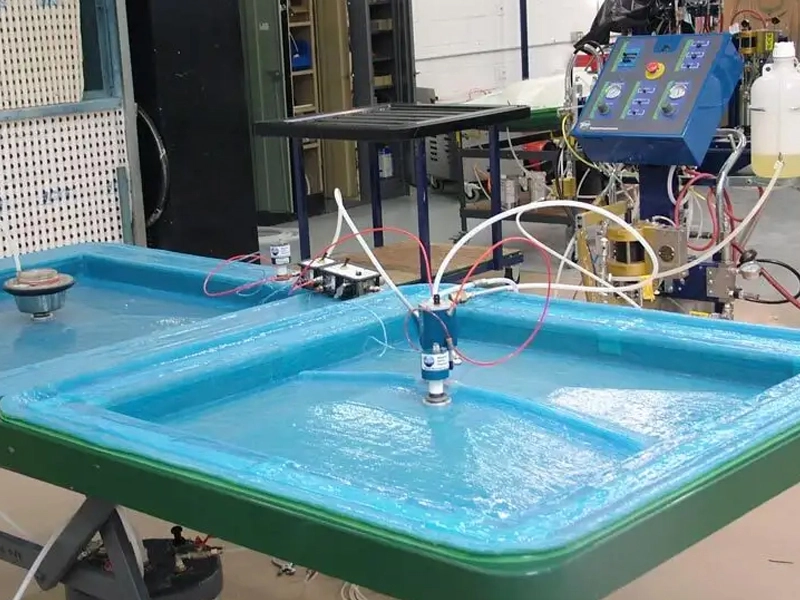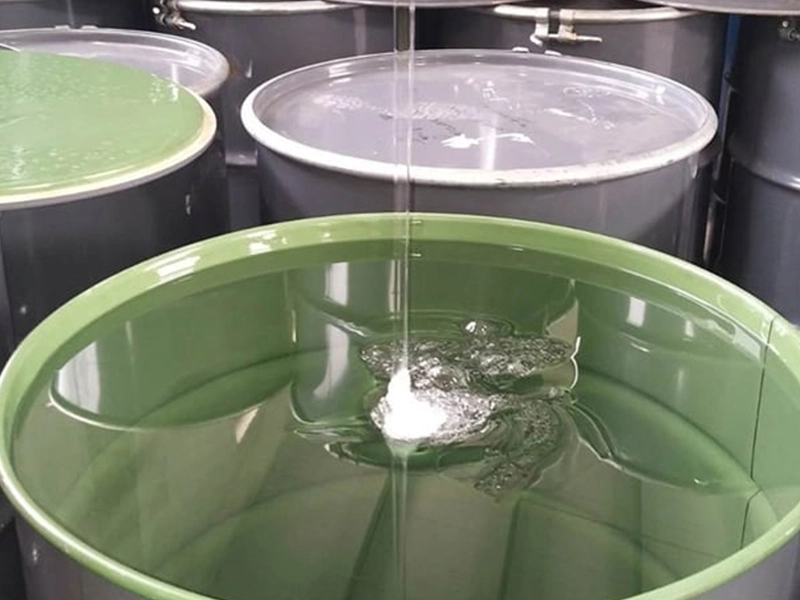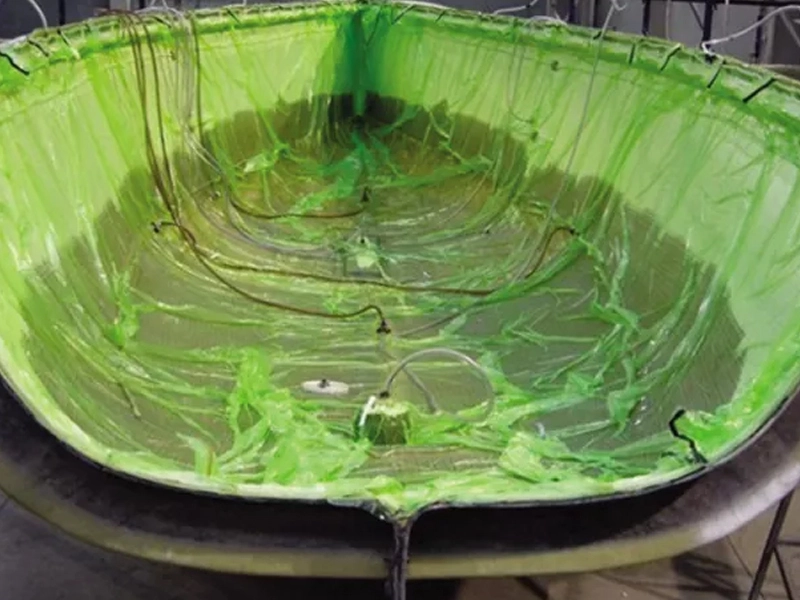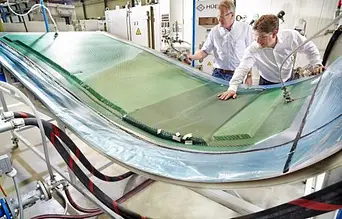-

Vacuum/RTM Resin
-

Vacuum/RTM Resin
-

Vacuum/RTM Resin
-

Vacuum/RTM Resin
In closed-molding, raw materials (fibers and resin) cure inside a two-sided mold or within a vacuum bag (shut off from air).
Product performance introduction
Vacuum/RTM Resin refers to the type of thermosetting resin used in the vacuum-assisted resin transfer molding (VARTM) and resin transfer molding (RTM) composite manufacturing processes.
The key characteristics of Vacuum/RTM Resins include:
-
Low to Medium Viscosity:
- Typical viscosity range is 100-500 centipoises (cP).
- This low viscosity allows the resin to easily flow and impregnate the reinforcement fibers.
-
Compatibility with Reinforcements:
- The resin must be compatible with the reinforcement materials, such as glass, carbon, or aramid fibers.
- Good wetting and adhesion between the resin and fibers is important for mechanical performance.
-
Controlled Curing Behavior:
- The resin system includes catalysts, accelerators, and other additives to control the curing rate and extent of crosslinking.
- Proper curing ensures the desired mechanical, thermal, and chemical properties of the composite.
-
Suitability for VARTM and RTM Processes:
- The resin viscosity and flow characteristics are tailored for effective impregnation under vacuum or injection pressure.
- Resins may be formulated to have a suitable pot life and cure time for the specific manufacturing process.
Common Vacuum/RTM Resin types include:
- Epoxy resins
- Polyester resins
- Vinyl ester resins
The selection of the appropriate Vacuum/RTM Resin depends on the specific requirements of the composite application, such as mechanical performance, environmental resistance, and manufacturing process parameters.
Here are the key points about the use of resin in vacuum-assisted resin transfer molding (VARTM) and resin transfer molding (RTM) processes:
Resin Selection:
- Common thermosetting resins used include epoxy, polyester, and vinyl ester.
- Resin selection is based on desired mechanical properties, chemical resistance, curing characteristics, and compatibility with reinforcements.
- Low to medium viscosity resins (100-500 cP) are preferred for good impregnation.
Resin Preparation:
- Resins may require mixing with catalysts, accelerators, or other additives to control curing.
- Proper mixing and degassing is important to remove trapped air or volatiles.
Resin Injection and Impregnation:
- In VARTM, resin is drawn into the mold by vacuum, while in RTM it is actively injected under pressure.
- Resin flow and reinforcement impregnation are influenced by mold design, preform permeability, and injection parameters.
- The goal is to achieve complete and uniform resin impregnation without excessive resin flow or wastage.
Resin Curing:
- Curing parameters like temperature, time, and use of catalysts/accelerators are controlled.
- Proper curing ensures the desired degree of crosslinking and dimensional stability.
Defect Mitigation:
- Common defects include voids, dry spots, resin-rich/starved areas, and poor fiber-resin bonding.
- These can be minimized by optimizing resin viscosity, injection, and curing.
Resin Waste and Disposal:
- Unused resin, solvents, and other waste must be disposed of properly.
- Recycling and waste management practices help minimize environmental impact.
Safety Considerations:
- Appropriate PPE and ventilation are required when handling resins.
- Spill containment measures are important for worker and environmental safety.
Careful resin selection, preparation, and process control are crucial for producing high-quality composite parts using VARTM and RTM techniques.
tags:
Vacuum/RTM Resin
Series :
Unsaturated Polyester Resin >application
Aerospace,Automotive,Wind Energy,Marine,Infrastructure,Sports and Recreation
Brand name :
Vacuum/RTM Resin
FAQ
Q :
Why choose us?
A :
Professional service and competitive prices.
Other related products
-

Standard Steel Grating
Steel grating is a vital component in many industrial and commercial applications, offering strength, durability, and versatile design options. Standard steel grating refers to the most common form...

-

Aluminum Grating
Introduction Aluminum grating is a lightweight yet durable solution designed for various industrial, commercial, and architectural applications. Known for its excellent corrosion resistance, ease ...

-

Louver Steel Grating
Louver steel grating is a specialized type of grating designed to provide both ventilation and visibility while maintaining privacy and protection. It consists of a series of parallel bearing bars ...

-

Dense Welded Steel Grating
Introduction Dense welded steel grating is a high-strength, durable grating option designed with closely spaced bearing bars. This type of grating is particularly suitable for applications requiri...

-

Steel Grating Accessories
Introduction Steel grating accessories play a crucial role in the installation, stability, and longevity of steel grating systems. These accessories are designed to provide secure fastening, prope...

-

Painted Steel Bar Grating
Introduction Painted steel bar grating is a versatile and durable flooring and structural solution commonly used in industrial, commercial, and architectural applications. Steel bar grating is typ...

-

Riveted Grating
Introduction Riveted grating is a specialized form of steel grating characterized by its exceptional strength and durability. Unlike welded or press-locked grating, riveted grating is constructed ...

-

Serrated Press-Locked Steel Grating
Introduction Serrated press-locked steel grating is a specialized type of steel grating characterized by its serrated bearing bars and press-locked construction. The serrated design provides super...

